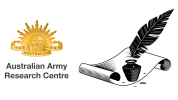Search
Using the filters to the left, click your selection, it will become bold and filter the results, click it again to remove that filter.
In Occasional Paper 16, Resetting the Australian Army , Dr Albert Palazzo identifies the key aspects of the Defence Strategic Review and their importance to Army, highlighting that the overall message is positive for the land force. Using a number of historical reviews to illustrate how Army has responded to government directed defence policy re-assessments in the past, Palazzo points to a trajectory for contemporary capability renewal. … Occasional Paper release - Resetting the Australian …
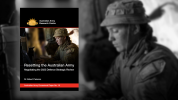
In Occasional Paper 19 , the authors focus on geostrategic trends and atrocity risks, analysing the relevance of these trends to Australia's strategic interests. In this Post, the authors summarise the results of the project which led to the paper's development and they highlight the significance of the challenge facing states seeking to prevent atrocity crimes. … Occasional Paper release - Geostrategic Trends and Atrocity …
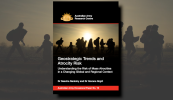
While militaries publicly declared an interest in robotic and autonomous systems (RAS), no documented wide-scale deployments of weapon systems exist. Occasional Paper 20, Understanding how to scale and accelerate the adoption of RAS , co-branded with RAND identifies a promising range of RAS technologies with military implications and evaluates the potential barriers to their widespread adoption. … Occasional Paper 20 release - Understanding how to scale and accelerate the adoption of …
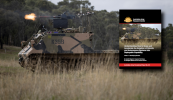
The Australian Army Research Centre (AARC) was established in mid-2016 in accordance with the wishes of the then Chief of Army Lieutenant General Angus Campbell. It is the successor to the Land Warfare Studies Centre. It sits as a Directorate within the Army’s Future Land Warfare Branch in the Land Capability Division of Army Headquarters. The AARC conducts strategic studies, research and analysis, fosters debate and advocates the value of the joint land force to Government, academia and the public. Read …

A Retrospective on the Coastal and Riverine Conflict in Vietnam Editors: Thomas J. Cutler and Edward J. Marolda Naval Institute Press , 2023, 262 pp Hardcover ISBN: 9781557507839 Reviewed by Blair Tidey The subject of this book is historically the most recent large-scale example of coastal and riverine warfare. Significantly, it covers a geographic region in which the Australian Army is most likely to use these capabilities, in cooperation, competition and conflict. While the specific historic context …
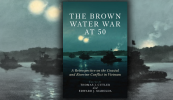
It has become somewhat par for the course, in any discussion of professional reading in a military context, to quote United States Marine Corps General James Mattis (retired). Mattis commands much respect, both within the US military and in the Australian Army. He is often viewed as the modern-day soldier-scholar par excellence . His books frequently appear on Professional Military Education (PME) Reading Lists, and his quotes on the importance on military literacy are often thrown about. This is because …
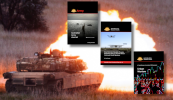
William Westerman is a historian at the Australian War Memorial writing the Official History of Australian Operations in Iraq, 2003-2011. A Fellow of the Royal Historical Society, he has research expertise in the First World War and is also the co-author of the Official History of Australian Peacekeeping Operations in Timor-Leste, 2000-2012. Among his other work, he has written a history of the Fitzroy Lions’ 1996 merger with the Brisbane Bears in the Australian Football League. … William …
by Mike Martin Hurst Publishers , 2023, 272 pp Hardback ISBN: 9781787389304 Paperback ISBN: 9781911723875 Reviewed by: Anthony Duus Mike Martin is a former British Army officer with extensive experience in Afghanistan, and he is currently a Senior Visiting Research Fellow in the Department of War Studies at King’s College London. In How to Fight a War , his fourth book, Martin has written a ‘reference guide for the Commander in Chief of a nation’s military’, as he believes that ‘our leaders must have the …

How the Australian Army Can Harness the Firepower Advantages of the Fourth Industrial Revolution Introduction Since 2011, the world has undergone a Fourth Industrial Revolution (4IR) which has heralded worldwide advances in artificial intelligence (AI), automation, and robotic technologies. [1] These disruptive technologies are gradually altering the character of warfare towards what AI entrepreneur Amir Husain describes as ‘hyper war’, where battles are waged entirely at machine speed. [2] The question of …
AAJ Vol XXI, Number 3 Timeline Deadline for article submissions: Monday, 24 March 2025 Planned Publication Date: November 2025 Submission form at the bottom of this page Description Have you ever wanted to write on issues important to Army? Is there something that Army could ’do’ better? Or is there something you wish people understood about Army now and in the future? The Australian Army Research Centre (AARC) invites submissions for the third edition of the Australian Army Journal (AAJ) for 2025. The AAJ …
